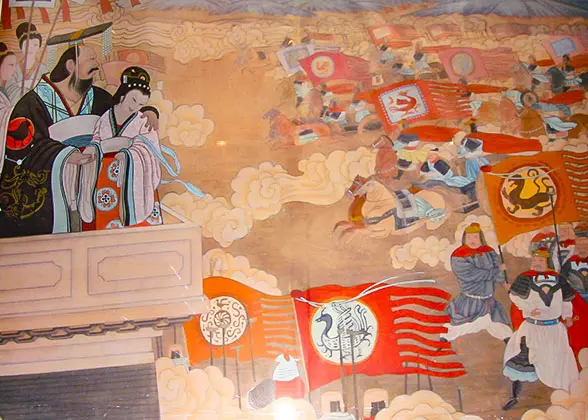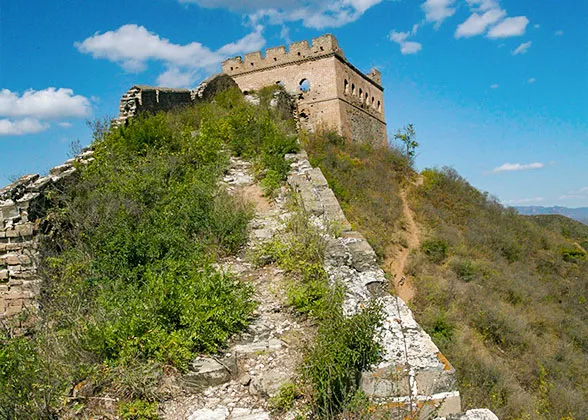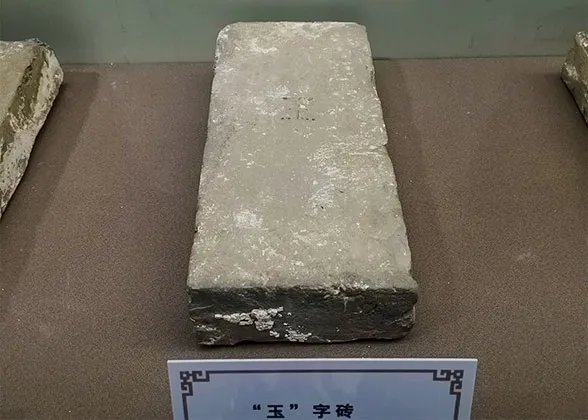Stories of Great Wall of China
This is the most well-known story of Great Wall of China. It is said that many men were forced to build the Great Wall of China during the Qin Dynasty (221BC - 206BC). Young man Fan Qiliang and his wife Meng Jiangnu were just married for three days. Fan Qiliang was forced to set off to build the Great Wall. Due to the heavy workload, hunger and coldness, Fan died at the construction site and his body was buried under the Great Wall. Missing her husband so much, Meng came to the Great Wall after overcoming many difficulities, but only got the bad news of her husband’s death. Being extremely sad, Meng Jiangnu cried for three days and three nights on the Great Wall. Suddenly, the Great Wall collapsed, revealing the body of Fan Xiliang. After calming down, Meng Jiangnian buried Fan Xiliang and killed herself in desperation.
|
|
There was a very cruel and corrupt King You in Western Zhou Dynasty (1046 BC - 771 BC). He had a very beautiful concubine named Bao Si, but she never smiled. To entertain her, the King took Bao Si to the beacon towers and ordered to light the alarming fire of the Beacon Towers. The marquesses and soldiers saw the fire, thinking that western tribes came to invade, and then hurried to assemble. To their disappointment, they were teased and there was no tribal invasion. They were extremely depressed and went back angrily. Seeing their reaction, Bao Si finally burst into laughter. Soon after, enemies really invaded. The King ordered to light the fire to call his army, but no one came to rescue him. As a ewsult, the capital was captured by the enemy, the King was killed, and Western Zhou Dynasty perished.
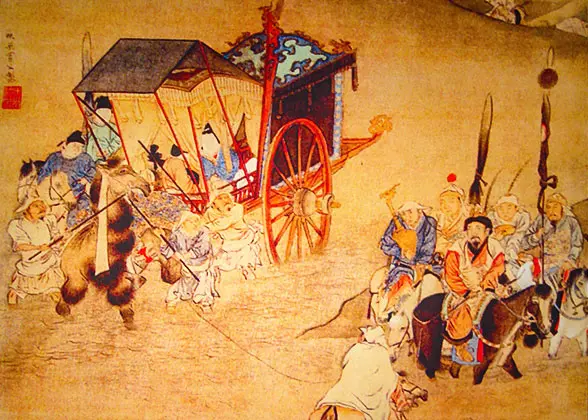 |
| Zhaojun Going out of the Frontier Pass |
This is a true Great Wall story in Chinese history. In 54BC, Huhanye Chanyu, a tribal leader of the Huns, was defeated by his brother and escaped south to the Guanglu, just outside the Great Wall. He surrendered to Han court, and asked to be the son-in-law of then Emperor Hanyuan. After, Wang Zhaojun, a beautiful palace lady was selected and titled “princess” to marry Huhanye. After Zhaojun left her hometown, went through the Yumenguan Great Wall, departed the frontier and arrived in Huns area, she got along well with Huns and taught them the culture of the central plains. Since then, Huns and Han people had lived in peace for 60 years without a war. Zhaojun’s contrubution brought peace, tranquility and prosperity to the Hus as well as the Han people.
![]() See more about Legend of Yumenguan Great Wall
See more about Legend of Yumenguan Great Wall
Badaling Great Wall Legend - Poisonous Grass Helps Guard Against Enemies
It is said that after the construction of Badaling Great Wall, there were soldiers guarding there. When night fell, the sentinels were afraid that they would fall asleep and let the enemy come up without knowing it, so they pleaded God not to let them fall asleep. When the Jade Emperor knew it, he sent God of Medicine to sprinkle the seeds of a kind of poisonous grass outside the Great Wall. The grass grew up and it was all over the place. If the invading enemy came across the grass, they would be stung and shouted out, so that the sentry knew the enemy was coming. Ever since, th soldiers on guard had not been afraid of falling asleep at night anymore.
Jinshanling Great Wall Legend - Slates of Wangjing Tower
On the Tiger Mountain of the Jinshanling Great Wall, there is a Wangjing Tower surrounded by dangerous cliffs on all sides. It is said that many people were injured or even died transporting the slates to build the tower. Even though the slates could not be transported to the mountain top successfully. Hearing that, the God Jade Emperor was moved and sent God Erlang to help them. The God Erlang turned his sword into a whip and waved it to the slates. The slates immediately turned into many goats and went straight to the mountain top one by one. After the God Erlang reached the top, he counted, no more and no less, the slates were just enough to build the tower. At this time, a soldier screamed and ran back when seeing the God Erlang and the goats. The God was also shocked and kicked dozens of slates down to the mountain by accident. Therefore, dozens of slates to build Wangjing Tower were missing. Now, if you board Wangjing Tower, you can see that five of the twelve-layer foundation of the Wangjing Tower are made of gravel blocks and some slates are still piled up in the bottom the the valley.
|
|
The Wall Stabilizing Brick in Jiayuguan Great Wall
According to this Great Wall legend, in the Ming Dynasty (1368-1644), there was a craftsman named Yi Kaizhan who was proficient in mathematics. He calculated that 99,999 bricks were needed to build Jiayuguan Pass.The supervisor did not believe him and said that if he mistakenly estimated it, all the workers would be sentenced to three years of hard labor as punishment. After the project was completed, a brick was left behind. The supervisor was very happy and was prepared to punish the workers. However, Yi said that the entire city would collapse if the brick was moved. Since then, the brick was remained in place to stabilize the whole pass, and no one dared to move it. You can still find the brick on the Jiayuguan Pass today.
![]() Read More:
Read More:
Legends of Jiayuguan Great Wall
From the Warring States Period (475 - 221 BC) to the Ming Dynasty (1368 - 1644 AD), Yanmenguan Pass had been an important defense fortress on the border. The story of generals of the Yang Family occurred in the early years of the Song Dynasty (420 - 479), mainly talking about Yang’s famous generals Yang Ye, Yang Yanzhao and Yang Zongbao and other Yang family members who defended the country against invadors. Yang Ye was a general of the Song Dynasty and led his seven sons to guard Yanmenguan Pass. He was loyal to the Song Dynasty, but he was finally killed by the traitor. His son and grandson have inherited and carried forward the good family style of Yang’s “loyalty to the country and people”.
Wu Sangui Opened Shanhaiguan Pass to Surrender to Qing Army
This is also a Great Wall story truly happened. In the late Ming Dynasty (1368-1644), the Ming court was threatened by the peasant uprising led by Li Zicheng and the Manchu army from northeast. When the Ming emperor committed suicide, which meant the demise of the Ming Dynasty, Wu Sangui and his army were at Shanhaiguan Pass of Great Wall. Knowing the importance of Wu Sangui and Shanhaiguan, Li kidnapped Wu’s family to force him to surrender. In order to save his family, Wu prentended to surrender to Li, while asked Dorgon, the general of Manchu army for help in condition of giving Manchu some territories within Shanhaiguan. Li didn’t relize Wu’s trick until he arrived at Shanhaiguan when Li and his army had lost the favorable opportunity to enter Shanhaiguan Pass. At that time, Dorgon came with his troop, defeated Li and forced Wu to surrender. Having no way out, Wu handed over Shanhaiguan Pass to Dorgon, and then Dorgon with Qing army entered central plain, occupied Beijing and established the Qing Dynasty (1644 - 1911).
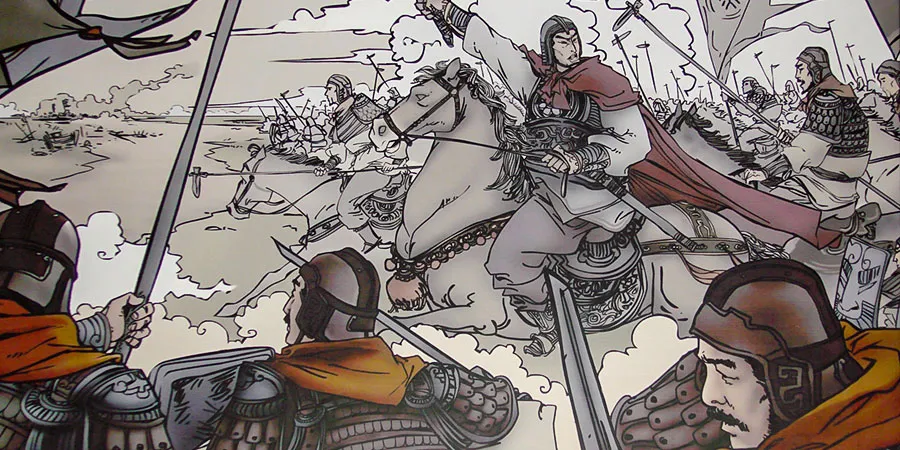 |
| Battle of Shanhaiguan |
![]() Read More:
Read More:
Legend of Shanhaiguan Great Wall
War of Shanhaiguan
Long-time Preserving Lime and Yanjing Town
During the Spring and Autumn Period and the Warring States Period (770 - 221 BC), King of Yan State requisitioned the farmers to build a high wall on the mountain top of his state’s border to avoid the invasion by enemies. At that time, the walls were built with mud. By chance, the farmers discovered the lime which could make the wall more solid and began to build walls with it. Later, when Emperor Qin Shi Huang built the Great Wall, he specifically asked the people of the original Yan State to make lime, because the quality of the lime they made was very good and can be preserved for thousands of years without deterioration. Later, in order to reward Yan people, Emperor Qin ordered to construct a town for them. The town was named Yanjing, nowadays’ Beijing.![]() More Historical Stories of Great Wall:
More Historical Stories of Great Wall:![]() General Meng Tian Attacked the Huns in the North, in the 3rd century BC, Qin Dynasty
General Meng Tian Attacked the Huns in the North, in the 3rd century BC, Qin Dynasty![]() Wei Qing and Huo Qubing Beat Back the Huns, in the 2nd century BC, Han Dynasty
Wei Qing and Huo Qubing Beat Back the Huns, in the 2nd century BC, Han Dynasty![]() Genghis Khan Breached China Great Wall, in 13th century, beginning of Mongol Empire
Genghis Khan Breached China Great Wall, in 13th century, beginning of Mongol Empire![]() Tumu Crisis, in 1449, Ming Dynasty
Tumu Crisis, in 1449, Ming Dynasty![]() General Qi Jiguang Renovated Great Wall in the Northern Frontier, in 16th century, Ming Dynasty
General Qi Jiguang Renovated Great Wall in the Northern Frontier, in 16th century, Ming Dynasty![]() Battle of Rehe - Last Battle on the Great Wall, in 1933, between China and Japan
Battle of Rehe - Last Battle on the Great Wall, in 1933, between China and Japan![]() Top 8 Great Wall of China Events in History
Top 8 Great Wall of China Events in History![]() Modern Stories about Hiking the Entire Great Wall:
Modern Stories about Hiking the Entire Great Wall:![]() William Edgar Geil - The First One Hiked the Entire Great Wall of China: He took 3 months and finished in 1908.
William Edgar Geil - The First One Hiked the Entire Great Wall of China: He took 3 months and finished in 1908.![]() Dong Yaohui Hiked the Entire Great Wall: He took 508 days and completed on September 24, 1985
Dong Yaohui Hiked the Entire Great Wall: He took 508 days and completed on September 24, 1985![]() Liu Yutian – the First Person Hiked the Great Wall Alone: He took 2 years and finished on April 5, 1986.
Liu Yutian – the First Person Hiked the Great Wall Alone: He took 2 years and finished on April 5, 1986.![]() William Lindsay - Working on Great Wall Protection after Trekking: He took 8 months to hike in 1987.
William Lindsay - Working on Great Wall Protection after Trekking: He took 8 months to hike in 1987.![]() Sally - the Only Woman Walked the Entire Great Wall of China Alone: She took half a year to hike in 1990.
Sally - the Only Woman Walked the Entire Great Wall of China Alone: She took half a year to hike in 1990.![]() Ren Erlin & Ren Zigeng – Chinese Father and Son Trekked the Great Wall: They took 89 days and finished the hiking in 2003.
Ren Erlin & Ren Zigeng – Chinese Father and Son Trekked the Great Wall: They took 89 days and finished the hiking in 2003.![]() Jamie Bradish & Rob England - a US Pair Took 10 Months to Walk the Great Wall: They finished in 2007.
Jamie Bradish & Rob England - a US Pair Took 10 Months to Walk the Great Wall: They finished in 2007.![]() Stephen Robert Loken – the First Person Walked to the East End of Hushan Great Wall: He took 601 days and completed in 2011.
Stephen Robert Loken – the First Person Walked to the East End of Hushan Great Wall: He took 601 days and completed in 2011.

